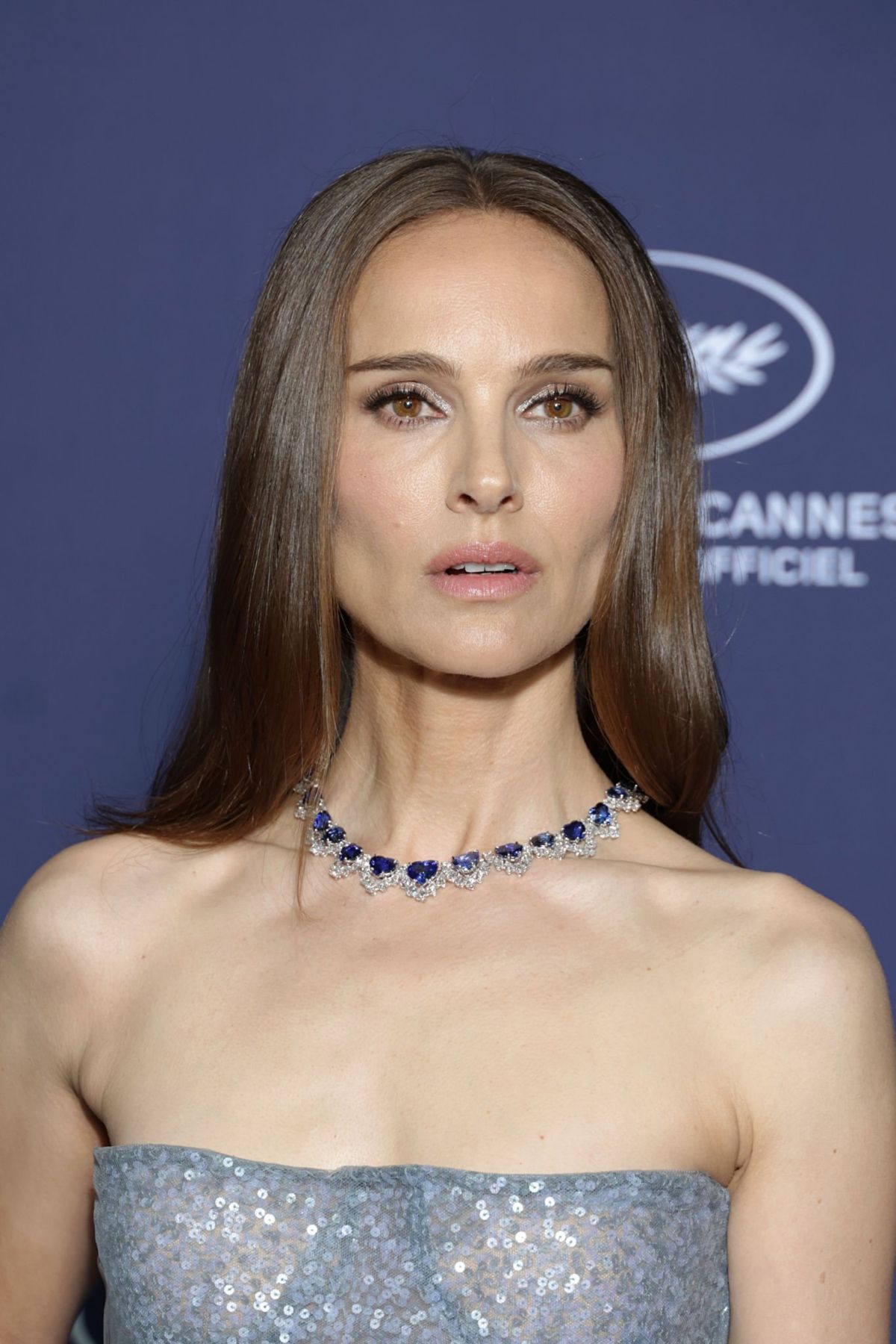Exploring The Natalie Roush Leaks: Privacy, Controversy, And Digital Content
The digital world, it seems, is a place where personal boundaries can sometimes feel a bit blurry, and frankly, sometimes they just vanish. Recently, the name Natalie Roush has been quite the talking point across the internet, particularly because of some content that apparently made its way online without permission. This situation, you know, really shines a bright light on some pretty important questions about privacy, about who owns what we create and share online, and just how safe our personal information truly is in this connected age.
For many, this incident with Natalie Roush, in a way, brings up a lot of concerns. It's not just about one person; it's about the broader implications for anyone who puts their life or their work out there on the internet. We're talking about influencers, creators, or even just everyday folks who share moments with friends and family. The idea that something intensely private could suddenly become public property is, well, it's a rather unsettling thought for many of us, isn't it?
So, this article aims to take a closer look at what happened with the Natalie Roush leaks, trying to understand the different layers of this incident. We'll talk about the impact it has had, the discussions it has started about digital privacy, and what lessons we might all take away from it. It's a pretty big topic, honestly, and one that touches on how we all live and interact online, so let's get into it.
Table of Contents
- About Natalie Roush: A Public Figure
- The Heart of the Matter: What Are the Natalie Roush Leaks?
- Unraveling the Controversy: Legal and Ethical Issues
- The Ripple Effect: Impact on Creators and the Online Community
- Lessons Learned and Looking Ahead
- Frequently Asked Questions About the Natalie Roush Leak
- Conclusion
About Natalie Roush: A Public Figure
Natalie Roush, for many people, is a familiar name within the world of online influence. She has, you know, built up a pretty substantial following across various social media platforms. Her presence online often involves sharing aspects of her life, perhaps some fashion content, or even, in a way, just connecting with her fans through different updates. She's a person who has spent time creating a community around her interests and personality, which, you know, takes a lot of effort.
Over time, as her audience grew, Natalie Roush also, quite naturally, started to explore different avenues for sharing content. This included, for instance, venturing into platforms that offer exclusive material to subscribers, like OnlyFans. This move, as a matter of fact, is pretty common for influencers looking to connect more closely with their most dedicated fans and, you know, offer something special. It's a way to build a deeper relationship, you could say, with those who really enjoy her work.
Key Details About Natalie Roush's Public Persona
| Aspect | Description |
|---|---|
| Primary Role | Social media influencer, content creator |
| Online Presence | Known for a large following across various platforms |
| Content Focus | Personal updates, lifestyle, and exclusive content for subscribers |
| Platforms Used | Includes social media, and platforms like OnlyFans for exclusive material |
| Community Engagement | Actively connects with fans and builds a following |
The Heart of the Matter: What Are the Natalie Roush Leaks?
The core of the recent discussions surrounding Natalie Roush, frankly, revolves around unauthorized sharing of her private content. What happened, it seems, is that videos and pictures that were intended for a private audience, specifically her subscribers on a platform like OnlyFans, somehow became accessible to the wider internet. This sort of situation, you know, can cause a real stir because it breaches an expectation of privacy that content creators and their subscribers rely on, quite heavily, in a way.
Reports about the Natalie Roush leaks, as a matter of fact, describe content that was, for instance, part of a "haul video" or "lingerie haul" that she had created. This material, which was meant to be exclusive, suddenly appeared on various sites, spreading pretty quickly across different online communities. It's a pretty stark example, you know, of how quickly personal content can get out of control once it leaves its intended, private space, and it's something that, honestly, happens more often than we'd like to think.
Exclusive Content and Its Vulnerability
Platforms like OnlyFans, as you know, are designed to give creators a way to share exclusive material with their paying subscribers. The whole idea, essentially, is that this content is behind a paywall and, you know, meant only for those who have chosen to support the creator. The Natalie Roush leak, however, really highlights just how vulnerable this kind of exclusive content can be, even when it's supposed to be protected. It shows that despite the platform's intentions, there are still ways for private material to get out, and that's a serious concern for anyone creating or consuming such content.
This incident, in some respects, forces us to think about the nature of digital content ownership. When a creator uploads something, they usually expect it to remain under their control, or at least within the boundaries they've set. But when a leak happens, that control is, quite literally, taken away. It's a very clear reminder, you know, that once something is digital, even if it's meant to be private, it can, potentially, be copied and shared without permission, and that's a pretty big risk for anyone putting themselves out there.
Unraveling the Controversy: Legal and Ethical Issues
The Natalie Roush leak, frankly, isn't just a simple online incident; it brings up some pretty complex legal and ethical questions. When private content, especially something meant to be exclusive, is shared without permission, it touches on issues like copyright infringement, privacy violations, and, you know, the very idea of consent in the digital space. It's not just a matter of someone seeing something they shouldn't; it's about breaking laws and, very importantly, violating trust, which is a big deal.
From a legal standpoint, the unauthorized distribution of someone's private images or videos can, as a matter of fact, lead to serious consequences for those responsible. Laws regarding digital privacy and intellectual property are, in some respects, still catching up with the speed of the internet, but they do exist. This kind of incident, you know, often sparks discussions among legal experts about how to better protect creators and individuals from such breaches, and it's a conversation that's, arguably, more important than ever right now.
The Precarious Nature of Digital Ownership
One of the biggest takeaways from the Natalie Roush situation, honestly, is how fragile digital content ownership can be. You create something, you share it, and you expect it to be yours, or at least to stay where you put it. But a leak like this shows that, in a way, once something is out there digitally, even if it's behind a paywall or meant for a select group, it can be copied, downloaded, and then spread widely without your say-so. It's a pretty sobering thought, isn't it?
This incident really highlights the vulnerability of digital content. It underscores that, you know, creators must, in some respects, always be aware of the potential for their work to be misused. It's not just about protecting against hackers; it's also about people who might screenshot or record content and then share it. This sort of situation forces everyone, creators and platforms alike, to think much more deeply about how to protect intellectual property and, very importantly, the privacy of individuals online, which is a constant challenge, really.
Privacy Concerns in the Digital Age
The Natalie Roush leak, quite clearly, serves as a stark reminder of the ever-present risks to personal privacy online. In our world today, sharing information, whether it's a photo, a video, or just a thought, is so common. But this incident shows that even when we try to keep things private, or only share with a specific group, that information can, apparently, still find its way into the public domain. It's a pretty unsettling thought for anyone who uses the internet, you know, which is pretty much everyone.
This situation, honestly, also brings up the issue of data mismanagement. Sometimes, leaks happen not because of malicious intent, but because of errors in how data is stored or handled. Regardless of how it happens, the outcome is the same: sensitive information ends up circulating online, and that can have very, very real consequences for the person involved. It's a good prompt, you know, for everyone to think about how their personal data is being protected, and to be a bit more cautious about what they share, even if it's with a trusted platform.
The Ripple Effect: Impact on Creators and the Online Community
When something like the Natalie Roush leak happens, it doesn't just affect the person directly involved; it sends ripples through the entire online community, especially among content creators. For many creators, platforms that offer exclusive content are a significant source of income and a way to build a dedicated audience. When a leak occurs, it can, in a way, undermine the trust that subscribers have in the platform and, perhaps even more so, in the creator's ability to keep their content safe. This can, honestly, make creators think twice about what they share, and that's a pretty big deal for their livelihoods.
The incident also sparks a wider conversation about influencer culture itself. The phrase "influencers gone wild," for instance, has become a talking point, and it's, you know, often used in discussions about the boundaries and responsibilities of public figures online. It pushes people to consider the pressure influencers face, the expectations placed upon them, and the consequences when private aspects of their lives become public. It's a pretty intense spotlight, really, that can be hard for anyone to handle, especially when it's about something so personal.
Facing Online Harassment and Cyberbullying
A particularly harsh consequence of content leaks, as a matter of fact, is the inevitable wave of online harassment and cyberbullying that often follows. When private images or videos are spread without permission, the person involved frequently becomes the target of negative comments, judgment, and, you know, sometimes even threats. This kind of online behavior is incredibly damaging, causing significant emotional distress and, arguably, long-lasting harm. It's a very ugly side of the internet, frankly, that we see too often.
The Natalie Roush leak, in this respect, has, very clearly, brought these issues to the forefront. It highlights how quickly an online controversy can turn into a platform for bullying, where people feel free to say incredibly hurtful things without much thought for the person on the other side of the screen. It really underscores the need for better mechanisms to report and address online harassment, and for everyone to remember that there's a real person behind every screen, and their feelings matter, you know, just like anyone else's.
Lessons Learned and Looking Ahead
The situation with Natalie Roush's leaked content, honestly, offers some pretty important lessons for all of us who spend time online. First off, it's a powerful reminder that anything shared digitally, even with strict privacy settings, carries some level of risk. It makes us think about the "what ifs" and, you know, encourages a bit more caution about what we put out there, even if it's just for a small group. It's about being aware that the internet, in a way, has a very long memory and a very wide reach.
For content creators, this incident, you know, really emphasizes the importance of understanding the terms and conditions of the platforms they use, and perhaps, very importantly, having contingency plans for potential breaches. It's about taking proactive steps to protect their work and their personal well-being. This might involve using stronger security measures, thinking about watermarks, or, you know, simply being more selective about the kind of content they create for exclusive access. It's a pretty tough reality, but one that many are having to face.
Moreover, the Natalie Roush leak, in some respects, serves as a call to action for platforms themselves. They need to continually improve their security protocols, respond quickly to reports of unauthorized sharing, and, you know, provide better support for creators who experience these kinds of breaches. It's about creating a safer environment where creators can feel more confident sharing their work without constant fear of their privacy being violated. This is a big responsibility, honestly, and one that requires ongoing effort from everyone involved.
Finally, for the wider online community, this controversy, arguably, encourages a more thoughtful approach to how we consume and react to leaked content. Instead of immediately seeking out or sharing such material, it prompts us to consider the ethical implications and the harm it causes to the individual. It's about fostering a culture of empathy and respect online, where privacy is valued and, you know, personal boundaries are honored. We can, you know, all play a part in making the internet a more considerate place, and that's something worth striving for.
Frequently Asked Questions About the Natalie Roush Leak
Here are some common questions people have about the Natalie Roush leak, based on what others are asking:
What exactly was leaked from Natalie Roush?
The leak, as a matter of fact, involved private videos and images that were apparently intended for her exclusive subscribers on a content platform. Reports describe it as including, for instance, "haul" videos and other personal content that was not meant for public viewing. It was, you know, content that she had created for a specific, private audience, and it somehow made its way onto the wider internet without her permission, which is a pretty big deal.
What are the legal implications of content leaks like this?
Legally speaking, the unauthorized sharing of private content, especially copyrighted material, can lead to serious consequences. This often includes violations of copyright law and, you know, privacy laws. Individuals who share such content without permission could face legal action, including lawsuits for damages. It's, honestly, a pretty complex area of law, but the general rule is that you can't just share someone else's private material without their consent, and that's a very important principle.
How can content creators protect their private work from being leaked?
Content creators, in some respects, can take several steps to better protect their private work. This includes, for instance, using strong, unique passwords for all their accounts, enabling two-factor authentication, and being very careful about who they share sensitive information with. It's also, you know, important to understand the security features of the platforms they use and to report any suspicious activity immediately. While no system is completely foolproof, taking these precautions can significantly reduce the risk of a leak, and that's something worth doing, obviously. You can learn more about digital privacy on our site, and link to this page here for more online content safety tips.
Conclusion
The Natalie Roush leak, in essence, serves as a powerful and, honestly, quite a sobering reminder of the ongoing challenges we face in the digital world. It brings into sharp focus the delicate balance between sharing and privacy, and the very real consequences when that balance is upset. The incident has, very clearly, sparked important conversations about the rights of content creators, the responsibilities of online platforms, and the ethical considerations for everyone who participates in the online space.
Ultimately, this situation urges us all to be more mindful of our digital footprint, to champion stricter privacy measures, and to foster a more respectful and empathetic online community. It's a call to remember that behind every screen name and every piece of content, there's a person, and their privacy and well-being deserve our utmost consideration. Let's, you know, keep these discussions going and work towards a safer, more considerate internet for everyone.
- Baylen Dupree Nude
- Turtle Without Shell
- Peter Dinklage Wicked
- American Bully American
- Byford Dolphin Accident

Natalie Portman made her Cannes red carpet comeback in a glittering

Natalie Portman - Página 36 - abroparaguas.com

Natalie Portman • Image Album